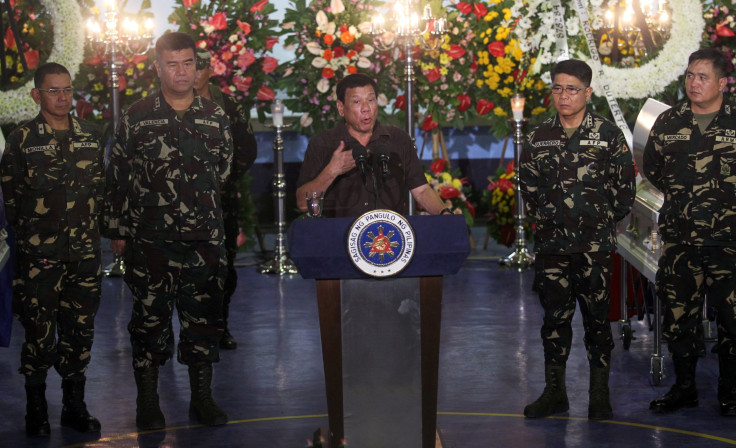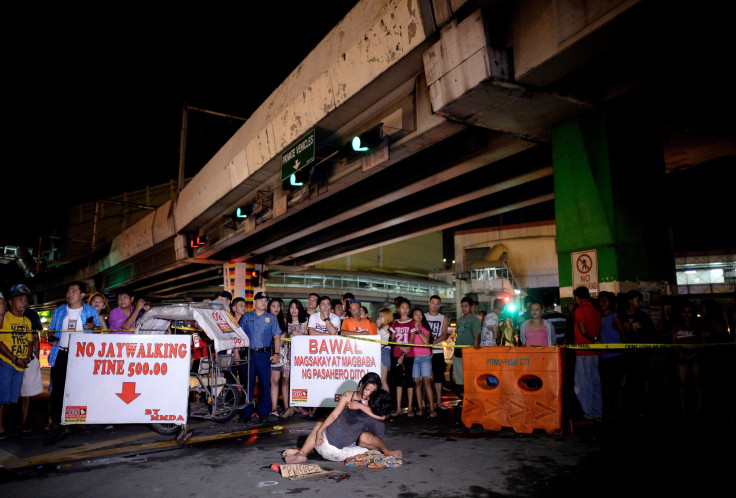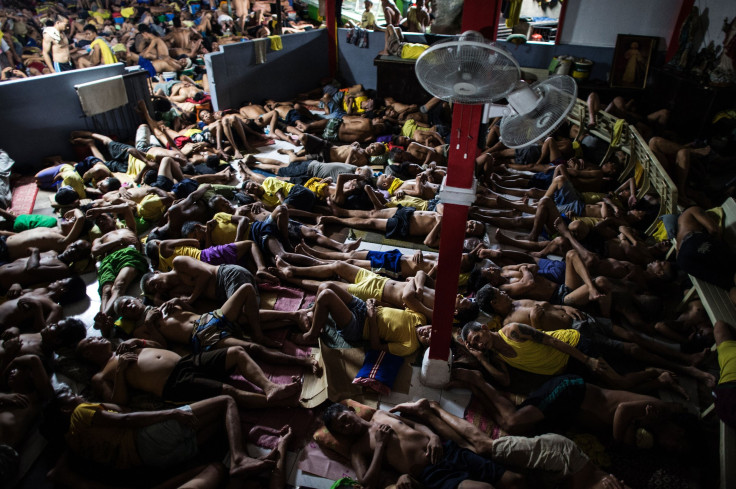Philippine Drug War: President Duterte Launches Corruption Purge

President Rodrigo Duterte of the Philippines launched a purge of the ranks of politicians, judiciary and the armed forces Sunday by publicly announcing names of over 150 people he accused of being involved in illegal drug-related corruption. Duterte gave the people he named 24 hours to turn themselves in to be investigated, or risk being targets of a “hunt.”
Nicknamed “the punisher” for his hard-line approach to tackling crime while he was mayor of Davao city in the country’s south, Duterte had made fighting drug crime one of the main platforms of his election campaign. Speaking at a military camp in Davao on Sunday, he once again reassured the police force that he would defend them if they were faced with charges of violating human rights while carrying out his anti-drug campaign.
Duterte said the list of names he read out had been seen by the police and military, and their personnel named in the list were asked to report to face administrative charges, while the judges on the list were told to report to the Supreme Court. Police protection given to judges and politicians in the list was ordered lifted, and their gun licenses were revoked as well.
“I’m ordering the national police chief to lift police supervision and cancel any and all private arms that are licensed to these mayors I mentioned. They are all canceled. Go out naked to the world and show how crooked you are. … All of you judges or whatever, you report to the Supreme Court. Policemen, you report to the police chief. And army, to the chief of staff,” Duterte said.
Michael Rama, former mayor of Cebu city, was among those named by Duterte. In a Facebook post, Rama said he was saddened at the fact but added: “Even how untrue this accusation is, should this be the way and the necessary step to win the war against drugs, I will fully cooperate with the authorities to immediately clear my name and we trust that we will be given the opportunity to present our side and prove our innocence. My unwavering support for President Duterte's campaign will continue.”
The Supreme Court expressed its concerns over names of judges being announced publicly.
JUST IN: SC releases statement on PRRD's speech naming judges allegedly involved in illegal drugs. @cnnphilippines pic.twitter.com/g12QfpBby7
— Anjo Cagmat Alimario (@anjocalimario) August 8, 2016
Since Duterte was sworn in as president on June 30, local media reports say that more than 400 people have been killed as part of the campaign against drugs, some by the police and others by vigilantes. Thousands of people have surrendered to the police, some even before he took office, from fear of being killed. Prisons in the Philippines are already overflowing, and Duterte said military camps will be opened to house more people who turn themselves in voluntarily.


There were several reports Monday of policemen and suspected drug lords surrendering themselves to the police.
31 cops (15 commissioned officers, 16 non-commissioned) and one retiree submitted themselves to probe today ff Duterte's expose
— Jaymee Gamil (@jaymeegamilINQ) August 8, 2016
Franz Sabalunes, #2 drug lord in Central Visayas surrenders to PNP chief Dela Rosa. @cnnphilippines pic.twitter.com/4NcOadfCSt
— Gerg Cahiles (@gergcahiles) August 8, 2016
Brig. Gen. Restituto Padilla, spokesman for the Philippines armed forces, said they would “be unrelenting in its campaign against illegal drugs. The full force of applicable military, criminal and civil laws will be applied without letup.”
Even as he read out the names, Duterte did not clarify what evidence was used to come up with the list and said the accusation “might be true, it might not be true.” And while telling human rights groups not to obstruct the government’s campaign, he also said that if any of the accused were charged in court, they would receive the due process of law.
Responding to the reports of vigilante killings, Vice President Leni Robredo, who is from a different political party than Duterte and has traditionally been a defender of human rights, said: “There have been a few voices already out there against extrajudicial killings, but I think that public outcry is not there yet. I think all of us should do our share in making sure that this has to stop.”
© Copyright IBTimes 2024. All rights reserved.





















